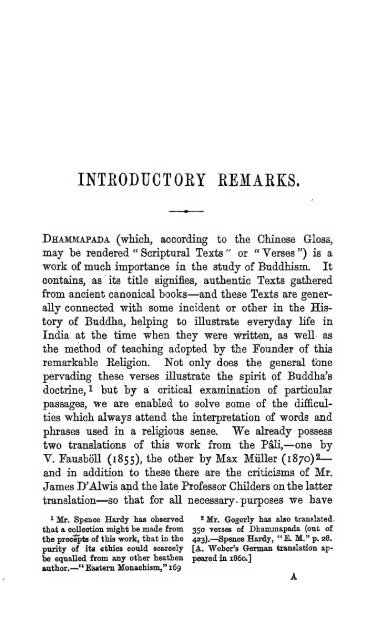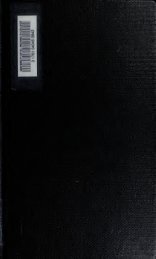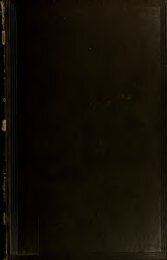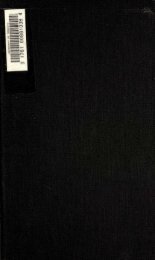Texts from the Buddhist canon : commonly known as Dhammapada
Texts from the Buddhist canon : commonly known as Dhammapada
Texts from the Buddhist canon : commonly known as Dhammapada
You also want an ePaper? Increase the reach of your titles
YUMPU automatically turns print PDFs into web optimized ePapers that Google loves.
INTEODUCTOEY EEMAEKS.<br />
<strong>Dhammapada</strong> (which, according to <strong>the</strong> Chinese Gloss,<br />
may be rendered " Scriptural <strong>Texts</strong> " or " Verses ") is a<br />
work of much importance in <strong>the</strong> study of Buddhism. It<br />
contains, <strong>as</strong> its title signifies, au<strong>the</strong>ntic <strong>Texts</strong> ga<strong>the</strong>red<br />
<strong>from</strong> ancient <strong>canon</strong>ical books—and <strong>the</strong>se <strong>Texts</strong> are gener-<br />
ally connected with some incident or o<strong>the</strong>r in <strong>the</strong> His-<br />
tory of Buddha, helping to illustrate everyday life in<br />
India at <strong>the</strong> time when <strong>the</strong>y were written, <strong>as</strong> well- <strong>as</strong><br />
<strong>the</strong> method of teaching adopted by <strong>the</strong> Founder of this<br />
remarkable Religion. Not only does <strong>the</strong> general tone<br />
pervading <strong>the</strong>se verses illustrate <strong>the</strong> spirit of Buddha's<br />
doctrine,! but by a, critical examination of particular<br />
p<strong>as</strong>sages, we are enabled to solve some of <strong>the</strong> difficul-<br />
ties which always attend <strong>the</strong> interpretation of words and<br />
phr<strong>as</strong>es used in a religious sense. We already possess<br />
two translations of this work <strong>from</strong> <strong>the</strong> PaU,—one by<br />
V. Fausboll (1855), <strong>the</strong> o<strong>the</strong>r by Max MiiUer (1870)2—<br />
and in addition to <strong>the</strong>se <strong>the</strong>re are <strong>the</strong> criticisms of Mr.<br />
James D'Alwis and <strong>the</strong> late Professor Childers on <strong>the</strong> latter<br />
translation—so that for all necessary- purposes we have<br />
^ Mr. Spence Hardy h<strong>as</strong> observed ' Mr. Gogerly h<strong>as</strong> also translated-<br />
that a collection might be made <strong>from</strong> 350 verses of <strong>Dhammapada</strong> (out of<br />
<strong>the</strong> prec^ts of this work, that in <strong>the</strong> 423).—Spence Hardy, "B. M." p. 28.<br />
purity of its ethics could scarcely [A. Weber's German translation apbe<br />
equalled <strong>from</strong> any o<strong>the</strong>r hea<strong>the</strong>n peaied in i3&o.]<br />
author.— "E<strong>as</strong>tern Monachism," 169<br />
A





